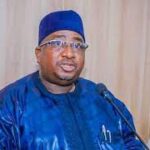
That’s bad news for English-speaking societies, which represent about 6 percent of the world’s population. First of all, the amount of time and energy devoted to learning to read and write could have been spent learning other things. Then there’s the failure rate-the number of people who never become fully literate in the language. “One predictable consequence of any difficult-to-master system is a higher failure rate,” Bell writes on her website. “Skills that require a special aptitude are learned well by only a few. With perseverance, many others can become quite good at them, too, but a substantial number never get beyond the basics, no matter how hard they try.” (People with certain learning disabilities struggle even more: A 2001 study found that people with dyslexia have greater problems with English than with languages with more regular orthographies.)
That wouldn’t matter so much if we were talking about something recreational, such as juggling. But literacy is integral to modern societies. Schools have consequently endeavored to teach children how to read and write at younger and younger ages, but Bell says that’s problematic because children mature and learn at very different rates. It also steals time away from more developmentally appropriate activities for young children.
There’s a spill-over effect, too: Being judged for not being adept at spelling can undermine children’s self-confidence, lead people to give up on reading, and ultimately restrict their overall academic achievement and employment prospects. Ultimately, about one out of every five English speakers are functionally illiterate, meaning they “cannot read or write well enough for everyday literacy needs,” Bell said. Maybe they’ve learned enough to cope with simple items such as menus-but they still struggle with deciphering lengthy prose passages and reading important documents such as medicine warnings.
There are other societal and economic costs as well, including public welfare for impoverished adults who are set back by functional illiteracy; three-quarters of welfare recipients fall into this category. All in all, according to the Literacy Project Foundation, illiteracy costs American taxpayers about $20 billion a year.
A number of individuals, some of them joining forces through groups such as the U.K.-based English Spelling Society and the American Literacy Council, have been trying to alter this picture for years. But various proposals for spelling reform-with names such as NeuSpeling or NuEnglish-have, for a variety of reasons, failed to take off. People who have already mastered written English are reluctant to invest time in learning a new spelling system-and many of those who haven’t mastered it are loath to admit it, having internalized the message that it’s a personal failing. Defenders of the status quo also maintain that today’s written English is worth preserving-it’s like the drafty old house that requires a lot of work but has history and character.
Bell doesn’t believe a total overhaul of the language is needed; rather, she says a good “tidying” will suffice while ensuring that nearly 600 years’ worth of modern English literature remains accessible. She advocates tweaking the 2,828 most-common irregularly spelled words to align them to conform with the main English spelling patterns.
In a sense, the simplified spellings people employ in text messages (“R u coming?”) are like an ad hoc, grassroots version of spelling reform. But whether such spellings will become standard English remains to be seen.
Meanwhile, engineer and applied linguist Dmitry Orlov has come up with another solution: Eliminate the need to learn English spelling, temporarily if not permanently. The human brain is primed to memorize groups of speech sounds, not sequences of letters, he says. With this in mind, he developed his own writing system, Unspell, which is more or less a phonetic rendition of spoken English. It treats words as sequences of sounds rather than sequences of letters, so what you see is what you get: How a word is written is how it’s pronounced, and vice versa.
Unspell has 13 basic symbols that also come in elongated versions; if needed, they can also be embellished by a voicing mark that looks like the accent mark in Spanish and/or a bar that means “say the sound with your mouth open wider.” There is one distinct way to represent each of the 38 English sounds that Orlov says are needed to distinguish the meanings of words. Unspell is available in two versions to account for additional differences between North American and British English; the white paper goes into detail about how other complexities such as homonyms and homographs are handled.
Orlov also took care to design the symbols in a way he hopes will minimize difficulties for people with dyslexia and certain other visual or motor impairments-there are no loops or symbols that are flipped versions of other symbols, for instance.
A beginning reader should be able to learn to read sentences in Unspell in just a few months, Orlov says. He recently published an Unspell primer with exercises and puzzles, and has begun rolling out Unspelled versions of classic children’s books such as Tom Sawyer. He eventually plans to publish Unspelled versions of all the titles in Project Gutenberg.
Educators questioned about Unspell say they’re intrigued but want to see how the theory plays out in practice. Orlov has informally tested it with a handful of people and plans to pilot it among other students in the near future. In the meantime, he adds, the primer has sold hundreds of copies since he made it available in late 2014; as far as he can tell, most of the buyers have been parents whose children are struggling with reading.
He doesn’t expect Unspell to completely replace “spelled English” for most people. Rather, he views it as an accessible literacy training ground for children, before they learn to read and write conventional English. (This is akin to the Chinese and Japanese writing systems, he says, which also require a lot of memorization and are initially taught using simplified scripts.) “Teach [children] to read a simple system,” he says, “and then they can learn a complicated one by themselves” when they are intellectually ready, typically between the ages of eight and 10. Just as importantly, atthat stage, they would approach the task from the vantage point of literate, empowered persons who are “already fluent in English.”
Orlov also expects Unspell to help foreign-born adults who are learning English pronunciation, as well as adult native speakers who struggle with reading or writing. He plans to introduce an app that will allow people to snap a picture of English text with a smartphone and have it “unspelled” on the fly (another app will translate in the other direction), and a browser plug-in that can Unspell anything on the Internet. To help with writing, people will be able to type words the way they sound, and the software will show the word or words that correspond to that sound, with cues regarding meanings if there are any ambiguities. In an ideal world, Orlov also envisions Unspell appearing on important signs, alongside Braille, as an accessibility requirement.
But he says technologists should always be prepared for their inventions to be taken in unexpected directions. He’s already heard reports of one such application: Children are using Unspell to exchange notes their teachers can’t decipher.

 Join Daily Trust WhatsApp Community For Quick Access To News and Happenings Around You.
Join Daily Trust WhatsApp Community For Quick Access To News and Happenings Around You.


